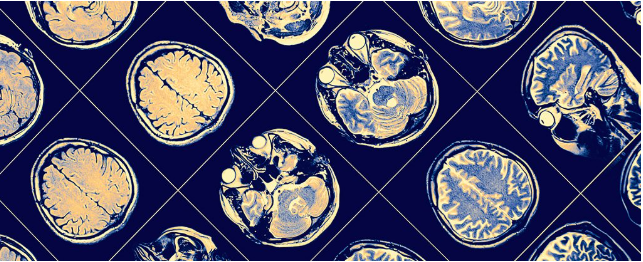


 11:36:36
11:36:36  2025-02-24
2025-02-24  582
582

In an exceptionally rare case, a patient with a high genetic risk of developing Alzheimer’s appears to have avoided his probable fate for decades, according to new research.
The man's situation is only the third case like this on record, and the only one for the PSEN2 mutation – the other two cases were for a different kind of genetic Alzheimer's.
Not only does this defy what we know about the mutation, which, for those who have it, almost always drives the development of Alzheimer's at around age 50 – his brain was full of amyloid-beta plaques, the sticky protein clumps associated with Alzheimer's neurodegeneration.
A team of researchers has been keeping track of the disease in his family since 2011, as part of a project to better understand dominantly inherited Alzheimer's.
His mother had the PSEN2 mutation, which is believed to drive early Alzheimer's by accelerating amyloid clumping, though it's still unclear exactly how that works. Eleven of her 13 siblings also had this gene mutation. And all were diagnosed with Alzheimer's by roughly age 50.
How did this man dodge the family curse? Scientists studied the man's case, in the hope that his unique history could uncover a more universal mechanism behind the disease, which still evades us.
In both genetic and non-genetic forms of Alzheimer's, amyloid deposits build up slowly in the brain until levels reach a critical point. Along with tangles of another protein called tau, this directly and indirectly leads to neuron death and, ultimately, cognitive decline.
Across ten years of study – led by population geneticist Maria Victoria Fernandez, from the International University of Catalonia, and neuroscientists Jorge Llibre-Guerra and Nelly Joseph-Mathurin, both from Washington University in St Louis – the man's memory and cognitive tests all remained normal.
Genetic tests ruled out the protective mutations that had been found in the two other patients who had resisted Alzheimer's against their genetic odds.
Although his brain was riddled with amyloid by age 61, as they would expect from someone with the PSEN2 mutation, it showed drastically less inflammation than Alzheimer's patients.
What tau proteins they detected were confined to the occipital lobe (at the back of our head, associated with vision), "potentially explaining the preservation of cognitive functions," the authors report. For someone with Alzheimer's, tau would usually be far more widespread, and it didn't even appear to impact his visual or spatial scores in tests.
"This pattern of restricted tau deposition is similar to previously reported extreme resilience cases," the authors note. "This containment of tau pathology, a common feature across currently known extremely resilient individuals, might be a critical factor in delaying the onset of Alzheimer's symptoms."
Of course, with a one-man sample size, it's impossible to tease apart exactly which aspects are truly involved. But the case study does open some interesting lines of inquiry, the most major being that, despite prevailing theories, an abundance of amyloid did not seem to confer Alzheimer's on this particular man.
The authors suspect that in cases like this, where tau deposits are prevented from spreading, the cascade that leads to typical Alzheimer's symptoms may be interrupted, or significantly slowed, regardless of amyloid.
He did have nine genetic variants that were absent among his PSEN2-affected family members. Six of these haven't been linked to Alzheimer's before, but they do have a hand in brain inflammation and protein folding.
The team thinks an unlikely combo, of these genes, and the man's years of exposure to high heat while working as a mechanic in a diesel engine navy ship, may have steered him clear of the regular PSEN2 path.
"Chronic exposure to such stress could activate cellular pathways involved in heat shock response and protein folding, which have been implicated in cellular resilience in neurodegenerative diseases," the authors note.
"Understanding the mechanisms that restrict tau spread in this individual could provide crucial insights into potential therapeutic targets for preventing or slowing the progression of AD."
Reality Of Islam |
|

This is the

A computer

Auburn Univ

Poisoning i
 9:3:43
9:3:43
 2018-11-05
2018-11-05
10 benefits of Marriage in Islam
 7:5:22
7:5:22
 2019-04-08
2019-04-08
benefits of reciting surat yunus, hud &
 9:45:7
9:45:7
 2018-12-24
2018-12-24
advantages & disadvantages of divorce
 11:35:12
11:35:12
 2018-06-10
2018-06-10
 6:0:51
6:0:51
 2018-10-16
2018-10-16
 7:26:19
7:26:19
 2022-04-08
2022-04-08
 9:42:16
9:42:16
 2022-10-19
2022-10-19
 9:39:36
9:39:36
 2022-12-28
2022-12-28
 6:14:3
6:14:3
 2023-01-18
2023-01-18
 6:28:21
6:28:21
 2022-12-20
2022-12-20
 8:25:12
8:25:12
 2022-03-09
2022-03-09
 10:55:53
10:55:53
 2022-06-13
2022-06-13
 5:41:46
5:41:46
 2023-03-18
2023-03-18
| LATEST |